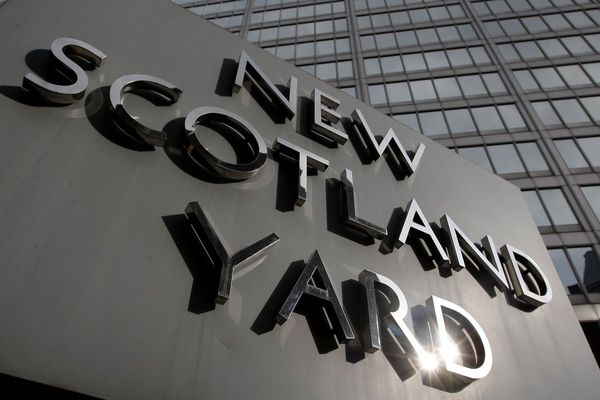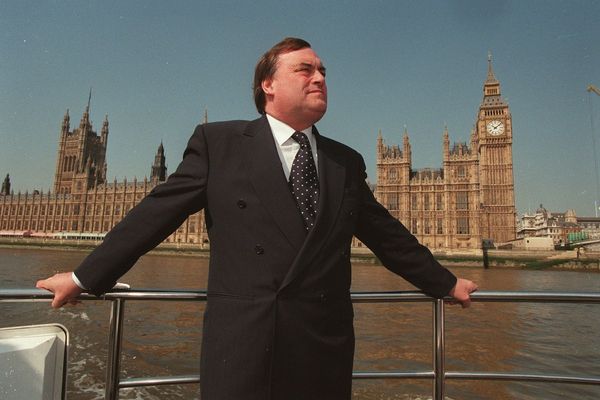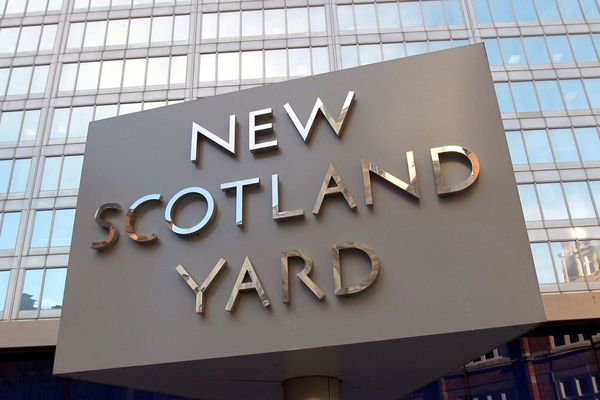
The unserious Peter Dutton will always be a study in bristling moral degeneracy and division, but let no-one say he lacks political nous. For more than six months, the federal opposition leader has cat-walked his chilling insights into the nation’s conscience, pandering to its basal fears, hopes and pulling contradictions.
In his stance against the Voice, we all bore witness to his shit-posting, hysterical lies, non-sequiturs and lack of good faith; the ways in which he so readily and madly oscillated between the frenzied and the confused, projecting a sense of perpetual crisis, much like someone relieved of the weight of their conscience.
But it didn’t matter. None of it did. If anything, the feeling of chaos he engendered, the sheer entropy that found amplification in his cadre of fabulists and the right-wing stone circle that passes for much of mainstream media, disguised the pathetic yet powerful coherence of his strategy of organised, unadulterated lying.
Overarching this campaign to burn Indigenous reconciliation to the ground was Dutton’s most profound political insight of all. Many Australians, the surge toward the No column on Saturday confirmed, are simply indifferent to the deep-seated suffering that sketches the lives of so many Indigenous people. While still others are blind — some wilfully so — to the slippery presence of racism in this country, preferring to see attraction in the burgeoning deceit that entrenched cycles of Indigenous disadvantage owe not to systemic discrimination or intergenerational trauma but choice.
Not all who voted No, of course, so easily meet these descriptions. The motivations of some, leaving aside the progressive No case, were reflexively partisan or transparently racist, while for so many more, the right’s fusillade of lies and conspiracies had its desired effect. But uniting the sizeable number of Australians who do meet these descriptions is a shared visceral reaction to the suggestion that these basic truths expose them as racist. That their quintessence finds expression in the quintessence of racism and white supremacy in all its sullen and concealed power.
Dutton knows this. It’s the sole reason he cleverly appropriated the rhetoric of Martin Luther King Jr in his utterly unserious appeal to colour-blind, universal equal rights. It’s why he and his lieutenants proselytised national unity over “racial division” or “special rights” as they fortified the country’s citadel of historic denial. And why, in the repertoire of classic Trumpian heel, Dutton accused Voice advocates of seeking to “divide the country by race” while busily fomenting these toxic divisions himself.
Having prowled the vacant conscience and political lessons of his predecessors, including his spirit-mirror John Howard, he understood as well as anyone that fear of being labelled racist tends to inspire more discomfort in these Australians than does the devastating and often fatal consequences of racism for their fellow Indigenous citizens. And so, confronted with this cognitive dissonance, he duly provided a respectable out — an avenue of self-deceit — to that cranial confinement, and one which found purchase across traditional ideological lines.
The brazen lie the Voice would divide the nation by race was clever precisely because it scoped a pathway towards No that salved the conscience of those who are incapable of being honest about their true motivations. It comforted their soul-blighted selves with the delusion that neither they nor their country are irredeemably bigoted but conversely have transcended racism with a moon-shot vibe — a nation that detests racism, no less.
It’s true that the mean, pursed-lipped oppression this deceit conjures up — its cascading dissonance and false imaginings — has a screaming, self-perpetuating denial about it, and one that serves the status quo.
But it’s equally unsurprising. People have always exulted in lies about themselves and their country, seeking to disguise the gap between their lofty ideals and reality. Yet if we care to be honest, if we dare to peep through these curtains of Frankfurt-like bullshit, the truth is that the sum of a nation is no more and no less than its outcomes. To draw on American anti-racist writer Ibram X. Kendi: “Nations aren’t inherently anything — they are what they do [and] what they do is what they breathe — and what they breathe is their soul.”
Unvarnished reality, in other words, has no shadow, no buried awareness in which we can hide our lesser selves. Here, the stark facts of Indigenous disadvantage across health, education, life expectancy, wealth, suicide and incarceration speak to generations of harmful and otherwise paternalistic policies and, yes, racism. And our decision to refuse Indigenous peoples the basic courtesy of consultation on such policies in the form of non-binding advice to government thunders the emptiness of our stated egalitarian ideals.
This is why Deputy Prime Minister Richard Marles’ statement on Sunday, that “Australians always get it right”, was so utterly insulting, dangerous and politically stupid. Not only was it ahistorical and counterfactual, it provided a false cover for the obvious role racism played in the campaign, thereby perpetuating the wellspring of historical denial that continues to shape and malign the country’s thinking on Indigenous peoples.
The same holds for Prime Minister Anthony Albanese, who following the referendum’s defeat, reiterated his view that Australians are “fair and compassionate”, telling the country that the “real division” exists not between “Yes voters or No voters” but in the (shameful) statistics which inform Closing the Gap policies. This position, too, is a false binary — a preposterous deceit too spineless to concede the link between racism and its material consequences for First Nations peoples.
Beyond this, the combined views exhibited by Labor leadership too easily shrug off the sheer damage visited on the nation’s civic space by Dutton’s racist misinformation and Trumpian attacks on our basal institutions — the courts, the AEC, and, not least, government itself among them. It bears repeating again and again that Australia is not innately immune to demagoguery and a disavowal of democratic norms and convention. In such an environment, the immediate casualties extend beyond truth and decency in public life and to citizens themselves, many of whom fail to see through the thickets of lies and are accordingly denied an informed vote. It’s like a silent, fascist coup, and one that diminishes us all.
The reality is Dutton will naturally feel emboldened by the success of his Trumpian tactics, which he will continue to deploy to his advantage across the board. In the meantime, he’ll draw on the veneer of impeachable legitimacy extended by Labor’s refrain that “Australians always get it right” to justify his suite of racist, assimilationist plans for Indigenous peoples.
As Professor Marcia Langton’s already noted, “the dark heart of the White Australia policy will be no whisper but a new national slogan” — something which already finds reflection in Dutton’s unsurprising decision to retract his promise of constitutional recognition of Indigenous peoples, and his reiteration of the need to deliver “practical outcomes” in the form of an audit of Indigenous spending and a royal commission into child sexual abuse in Indigenous communities. Under a Dutton government, he tells us, there would be less listening to “activists” and more listening to the likes of Senator Jacinta Nampijinpa Price.
And so, the country has reached an inflection point with Indigenous peoples. Dutton has held up a mirror to Australian society, and it has reflected back an ugly image entirely at odds with our self-perception. However unfair for those who voted Yes, the referendum’s brutal defeat ensures we, all of us, are now complicit in Indigenous suffering.







